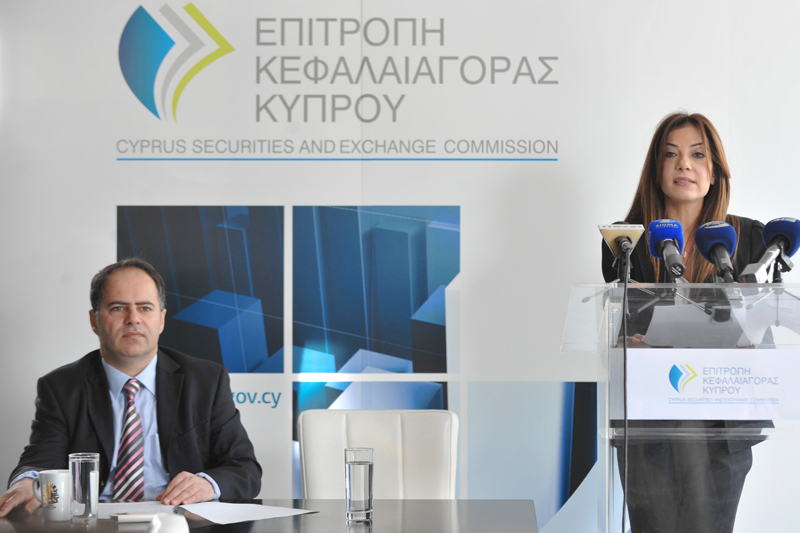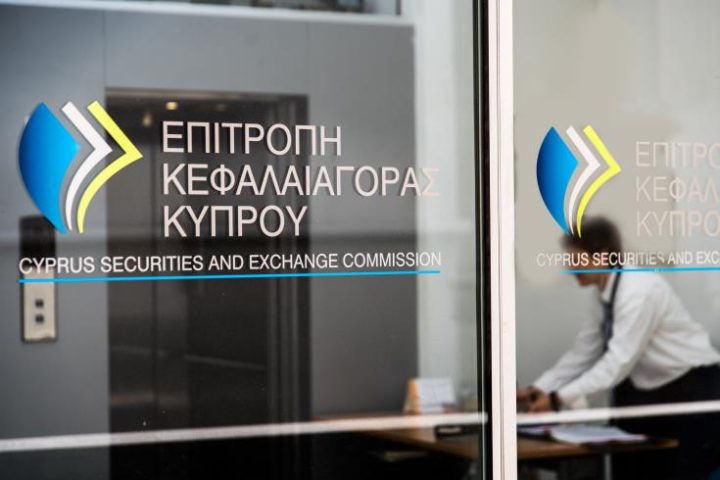Demetra Kalogerou, the current chairperson of CySEC, is due to leave her post in September after ten years in office.
Within months after taking over at the helm of the country’s top financial watchdog, she faced enormous challenges on nearly every front.
The Cyprus Securities and Exchange Commission was severely understaffed, while the banking sector was on the verge of collapse taking down thousands of shareholders and convertible bondholders. Most of them had been misled by their banks to place their money in these instruments that supposedly were as safe as deposits and more lucrative.
Little did they know that their bankers were luring them into a trap out of desperation to find as much capital as they could get.
CySEC launched unprecedented investigations that resulted in millions of euros in fines.
At the same time, the former attorney general Costas Clerides filed several unsuccessful criminal lawsuits based on the work of CySEC against former officers and directors of the banks involved including, the banks themselves.
But CySEC was not to make a name for itself just for chasing villains of white-collar crime.
Within months of taking office, Kalogerou prepared a strategic plan “to exercise effective supervision to ensure investor protection and the healthy development of the securities market.”
After serving two tenures appointed by two different governments, one can say she accomplished more than that.
The market size grew to become one of the biggest in Europe in terms of transaction volume.
Still, perhaps the most important accomplishment was to keep the reputation of the jurisdiction untarnished.
She waged war against financial crime, but there’s bound to be casualties, as happens in every war. And there were.
But she managed to get things in order and avoid the kind of damage other financial regulators had elsewhere with messy collapses.
Kalogerou came from within the market after previously serving for more than a decade as a senior officer at the Cyprus Stock Exchange, and she knew the financial services sector inside out.
She was flexible when circumstances called for such flexibility but tough and aggressive when she saw the rules blatantly broken by market thugs.
CySEC decisions are a testament to her skill, organisation, and professional conduct.
She did not hesitate to call former market stars of financial services firms, such as Sharelink, as liars in one of many decisions the agency ruled against or go after previously untouchable bankers that bribed politicians of the left and the right to receive more accommodating supervisory treatment for their shenanigans.
She fired all the weapons available at her disposal and won almost every legal battle against them all the way to the Supreme Court.
Not a small feat given the corrupt state of the political landscape.
At one point, a well-known lawyer of a supervised institution with enormous connections to the government threatened to pull his strings to get her fired. She stuck to her guns.
But Kalogerou was not alone in this mission.
She had a resourceful and supportive Vice-Chairman on her side, Andreas Andreou, a lawyer by professional who brought in much-needed experience.
Andreou was every bit of a wingman.
He held the line firm and always watched her back.
Together, they managed to triple the agency’s size in just over ten years and demonstrate leadership in the sense that they were able to take tough decisions and navigate through complex internal politics.
Some senior CySEC officers demanded the hiring of legal advisors for their departments.
But the legal department itself was adamant against such arrangement for obvious reasons.
However, the officers were right.
They needed to have handy all the legal support they could get to deal through treacherous MiFid I and II legal minefields rather than wait for the bureaucratic process of requesting support.
Eventually, Kalogerou and Andreou managed to take such decisions often with the support of their board.
But these are examples of the complexity and the challenging nature of decisions that must be taken for even seemingly small things.
After completing his second term last year, Andreou went back to private practice and was replaced by an energetic and highly skilled academic, George Theocharides.
His background in finance came in handy, but Theocharides will face more challenges than those his field of expertise can help him deal with if he takes over from Kalogerou in September.
He will need the kind of backing Kalogerou had to deal with internal politics and formalise a new organisational structure, among other things.
When internal disagreements erupt, just like in every major organisation, he will need to demonstrate leadership, top knowledge, independence and above all, a sense of justice.
Whether he will have the support of a skilled wingman as Kalogerou had, remains to be seen.
The government must not rush to appoint their favourite person, but the best person.
They should even consult with the current leadership of CySEC about the real needs of the agency and even go as far as to discuss names with them.
One of the problems CySEC is facing is related to its organisational structure.
It lacks a general manager, a permanent member of the senior management who can help politically appointed people navigate vast and complex legal issues and internal challenges.
Whoever will ultimately get appointed as chairperson, will have a huge challenge ahead.
Kalogerou has become almost a legend and a good example of how a senior public employee should be in every respect.
Even regulated entities are worried about her departure since trust and integrity is by far the biggest asset of every financial services firm and perhaps the most difficult and expensive to buy.
Whether the government will appreciate its significance remains to be seen.










